Wood waste management: Transforming forestry and land clearing with advanced machinery

As industries continue to emphasize sustainability, wood waste management has emerged as a crucial aspect of eco-friendly practices in land clearing and forestry. This blog post delves into the essentials of wood waste management and recycling, exploring the types of wood waste, the recycling process, and the machinery that facilitates these operations.
Can I Recycle Wood?
The short answer is yes. Wood waste can be broadly categorized into two types: organic wood waste and processed wood waste.
- Organic Wood Waste: This includes materials derived from trees, plants, and land clearing activities.
- Processed Wood Waste: This encompasses wood from construction, furniture manufacturing, wood shipping pallets, and similar sources.
Both types of wood waste can be recycled through various processes to create new products, generate energy, or produce nutrient-rich compost.
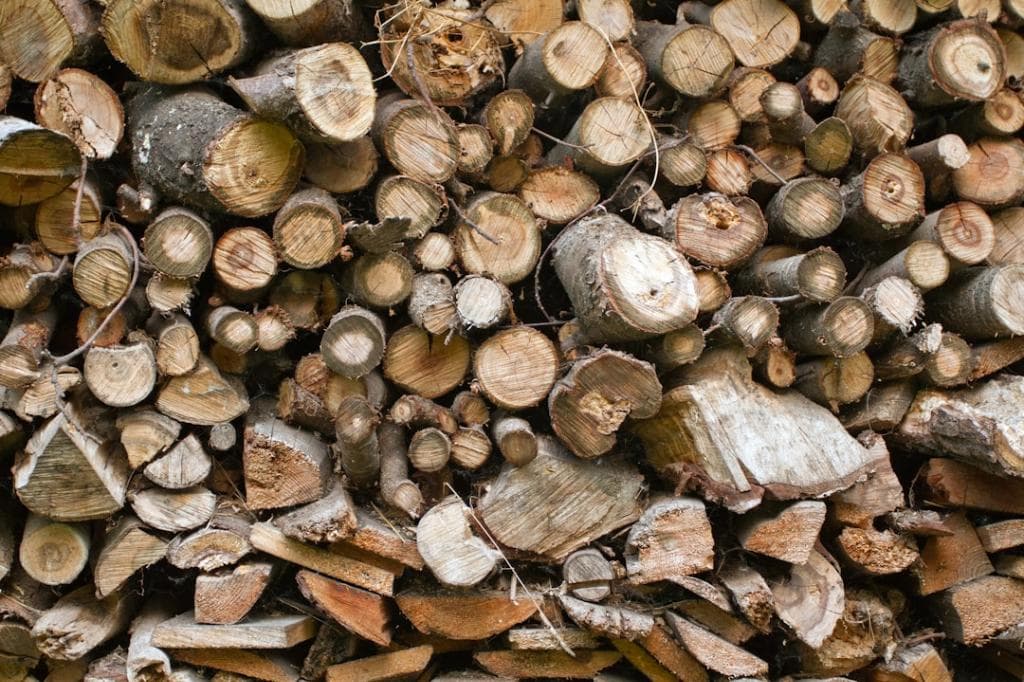
How is Wood Recycled?
Recycling wood involves several stages:
- Collection and sorting: Wood waste is collected from different sources and sorted based on its type and quality.
- Processing: This stage involves breaking down the wood waste into smaller, manageable pieces using specialized machinery.
- Separation: Contaminants such as nails, screws, and other non-wood materials are removed.
- Conversion: The processed wood waste is then converted into new materials or products, such as mulch, compost, biomass fuel, or raw material for new wood products.
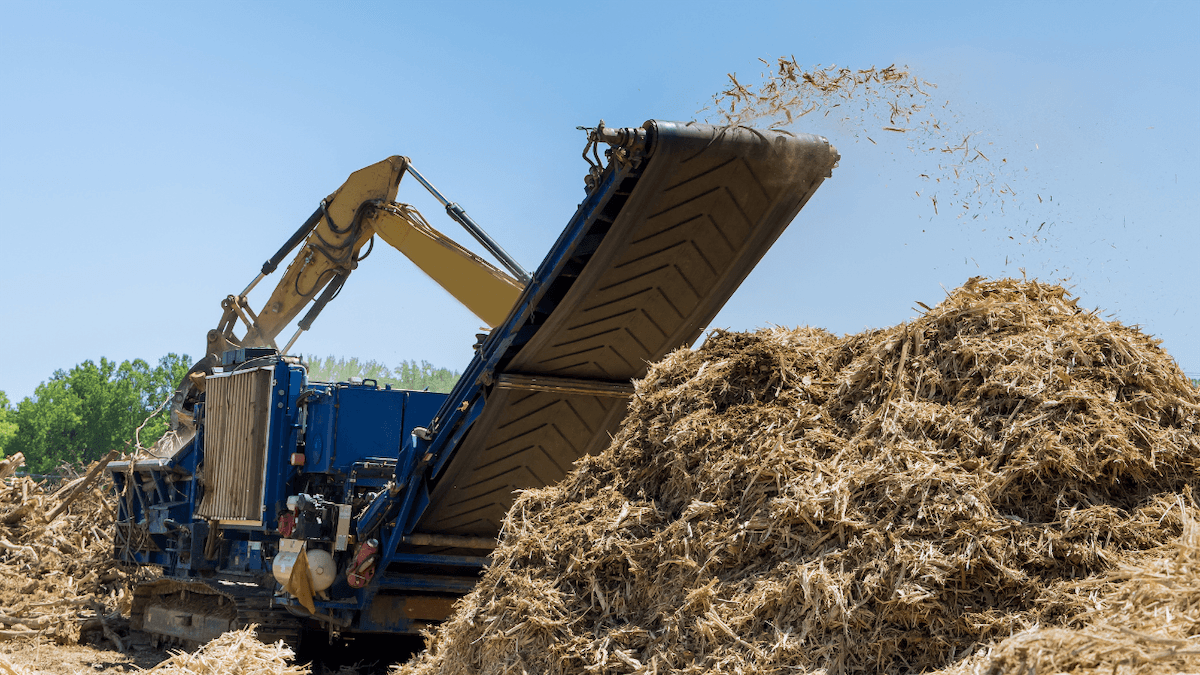
How to Make Use of Waste Wood
Waste wood can be repurposed in several ways:
- Mulch and Compost: Processed wood waste can be turned into mulch or compost, which can enrich soil and support plant growth.
- Biomass Fuel: Wood waste can be used to produce biomass fuel, a renewable energy source.
- New Wood Products: Recycled wood can be used to create new furniture, flooring, and construction materials.
- Creative Projects: Artists and DIY enthusiasts often use reclaimed wood for various creative projects.

Can You Sell Waste Wood?
Yes, waste wood can be sold to recycling facilities, biomass plants, and other businesses that repurpose wood materials. By selling waste wood, you not only generate additional revenue but also contribute to sustainable practices.
What Machines Are Used for Recycling Wood Waste?
The machinery used for wood waste management and recycling is designed to handle various stages of the process, from shredding and grinding to screening and separating. Here’s a look at some of the key machines involved:
Wood Shredders
Wood shredders reduce wood waste into smaller pieces or chips. They come in two main types:
- Single Shaft Shredders: Use a single rotating shaft with cutting blades.
- Dual Shaft Shredders: Feature two interlocking shafts for more efficient shredding.
Find the prefect shredder for your business with Machinery Partner - check out our range of shredders here!

Grinders
Grinders break down wood waste into smaller particles:
- Tub Grinders: Commonly used in land clearing and forestry operations.
- Horizontal Grinders: Ideal for processing large volumes of wood waste.
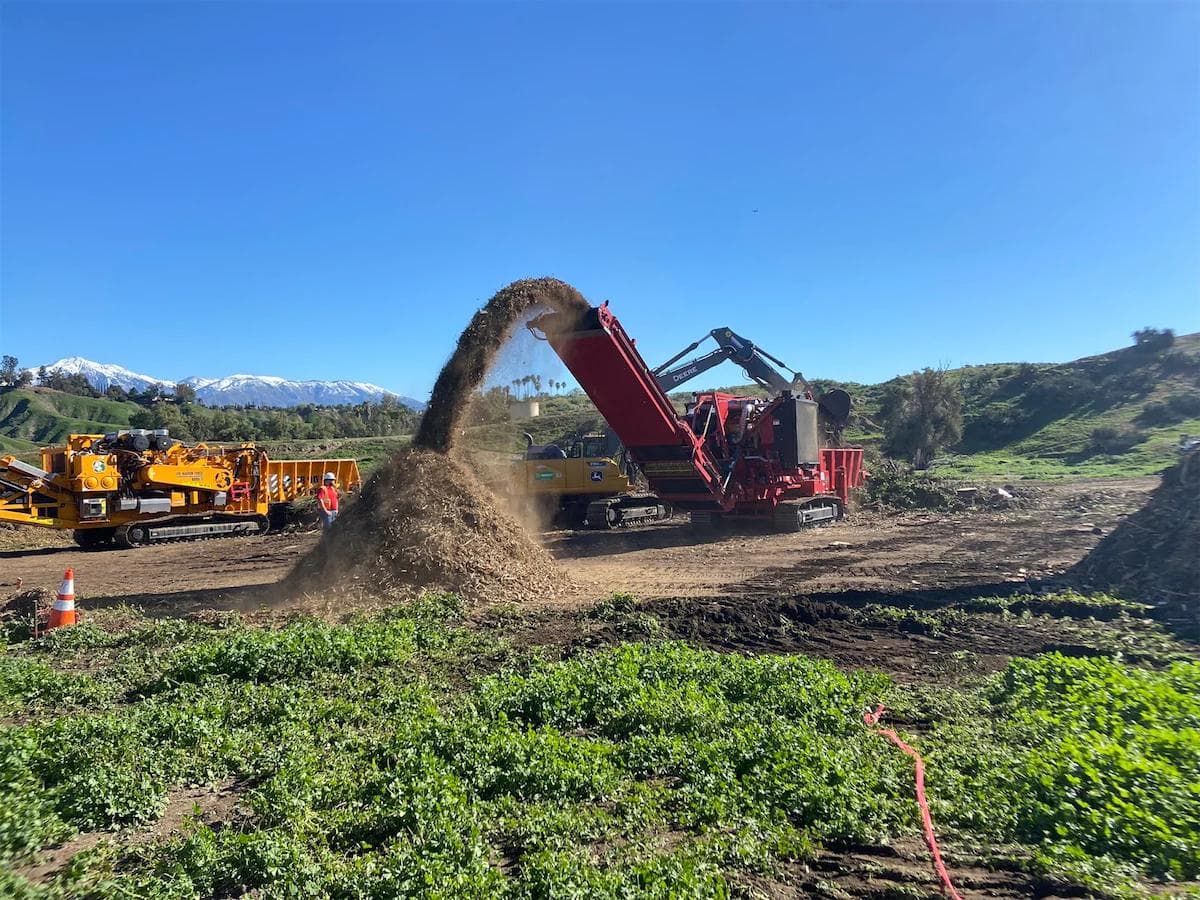
Hammer Mills
Hammer mills use rotating hammers to smash materials into smaller pieces, making them ideal for biomass processing and recycling.
Mulchers
Mulchers shred and mulch wood waste, brush, and vegetation, turning them into mulch or compost. They are essential for land clearing and vegetation management.
Chippers
Chippers process wood waste into smaller chips or pieces, perfect for forestry, landscaping, and biomass industries.
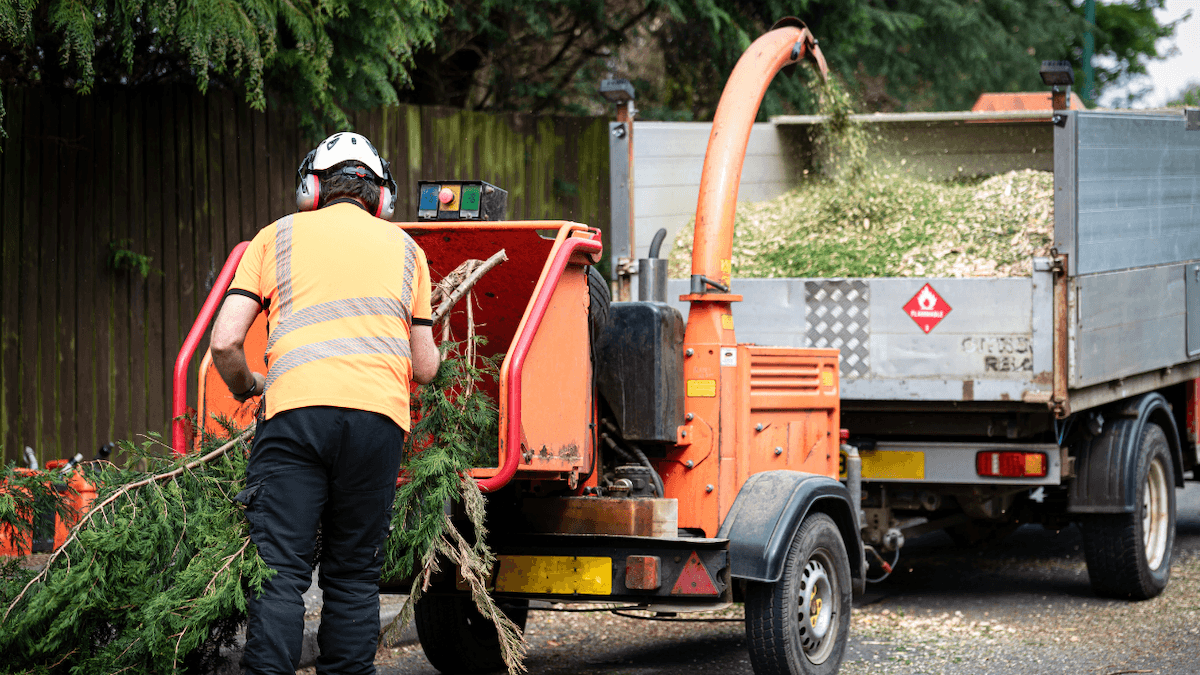
Air Curtain Burners
Air curtain burners efficiently burn wood waste while reducing emissions. They are used in waste management and biomass energy production. Air Curtain Burners are also suitable for tree roots and palm trees and other kinds of wood.
Browse air curtain burners sold by Machinery Partner right here!
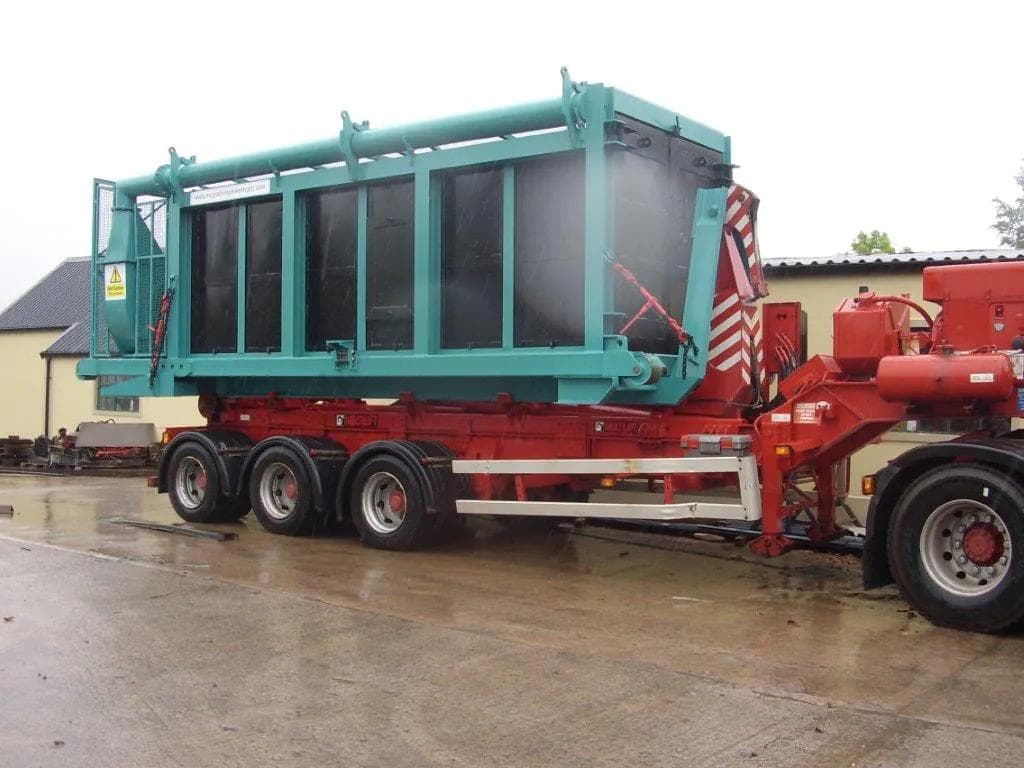
Trommels and Screeners
Trommels and screeners separate materials based on size, removing fines, soil, and other contaminants from processed wood waste.
Find the perfect trommel screener for your business with Machinery Partner - check out our full range of trommels here or for a small portable unit, check out the Gremac eZero electric trommel.

Cone Splitters
Cone splitters are used for splitting logs and large pieces of wood into smaller sections, making them easier to process.
Cone splitters available now from Machinery Partner with low lead times!
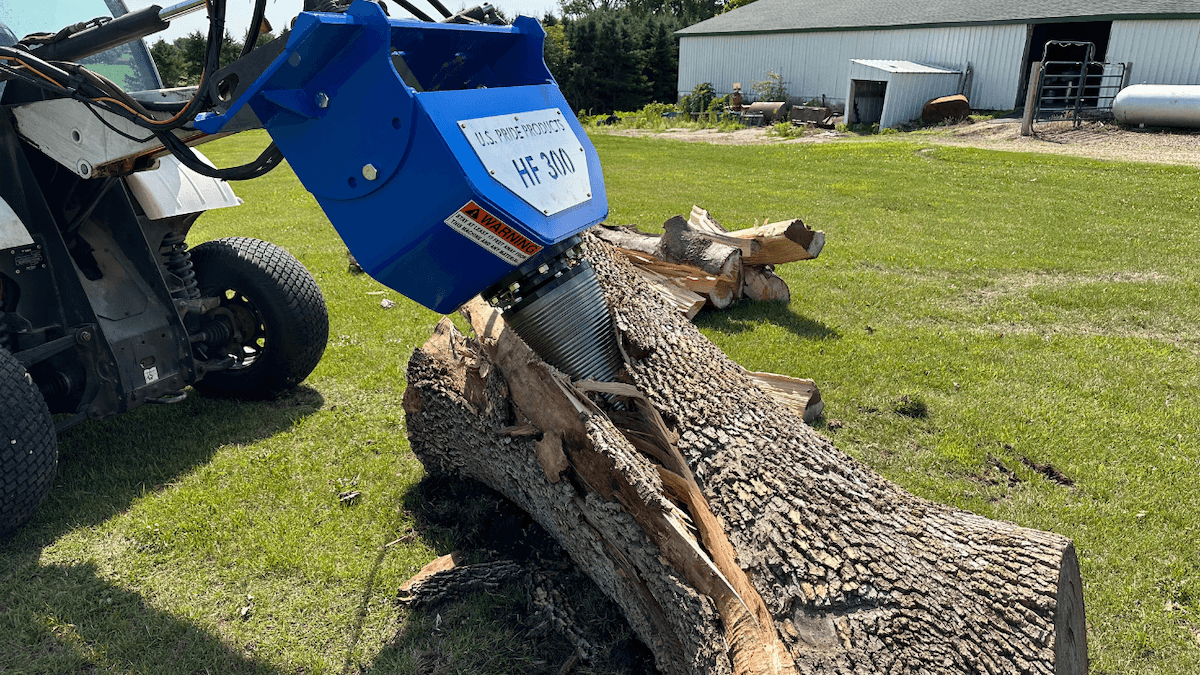
Stump Grinders
Stump grinders remove tree stumps and roots from the ground, grinding them into small chips or sawdust.
Conveyors
Conveyors transport materials between processing stages, ensuring a steady and controlled flow of wood waste.
Machinery Partner has a conveyor for every application - check out the range of stackers here!
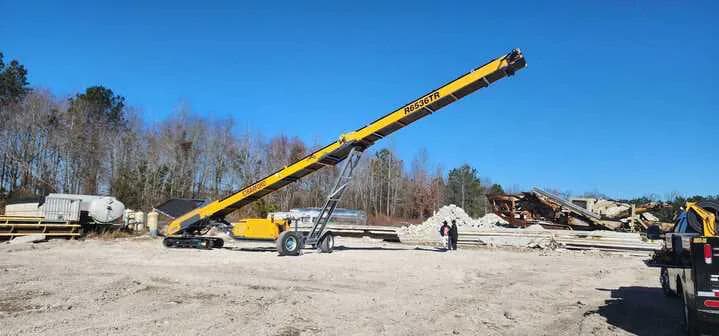
Compost Windrow Turners
These machines turn and aerate compost piles, facilitating the decomposition of organic materials, including wood waste.
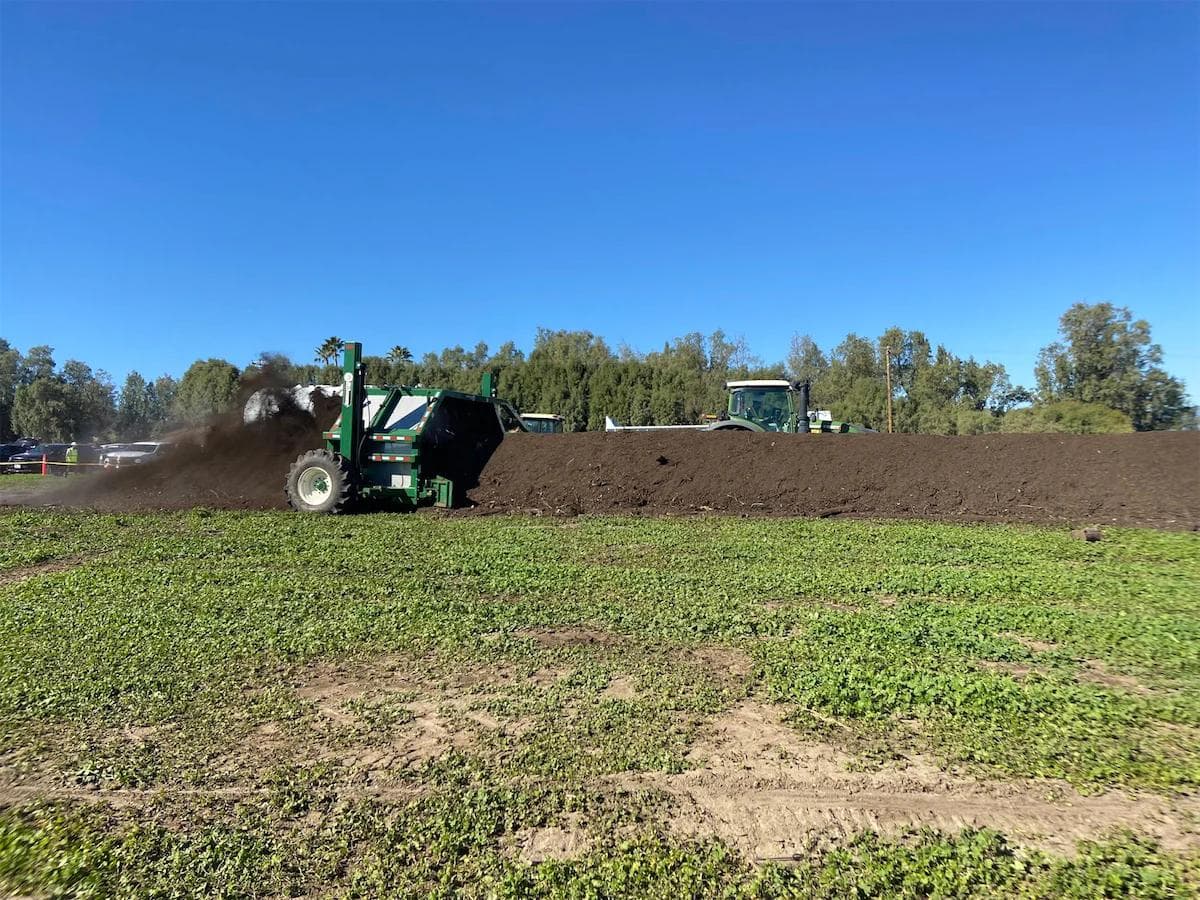
Bin Feeders
Bin feeders control and regulate the feeding of materials into processing machines, enhancing efficiency.
Conclusion
Effective wood waste management and recycling are essential for promoting sustainability in land clearing and forestry. By utilizing advanced machinery such as wood shredders, grinders, mulchers, and trommels, businesses can optimize their wood waste processing and contribute to a more sustainable future. Understanding the types and functions of these machines is crucial for optimizing wood waste management processes and promoting sustainability in various industries.
If you're looking to enhance your wood waste management practices, investing in the right machinery like an Air Curtain Burner can make all the difference. By doing so, you not only improve efficiency but also contribute to a greener, more sustainable world.
For more information on wood waste machinery and how it can benefit your land clearing and forestry operations, contact Machinery Partner today!






